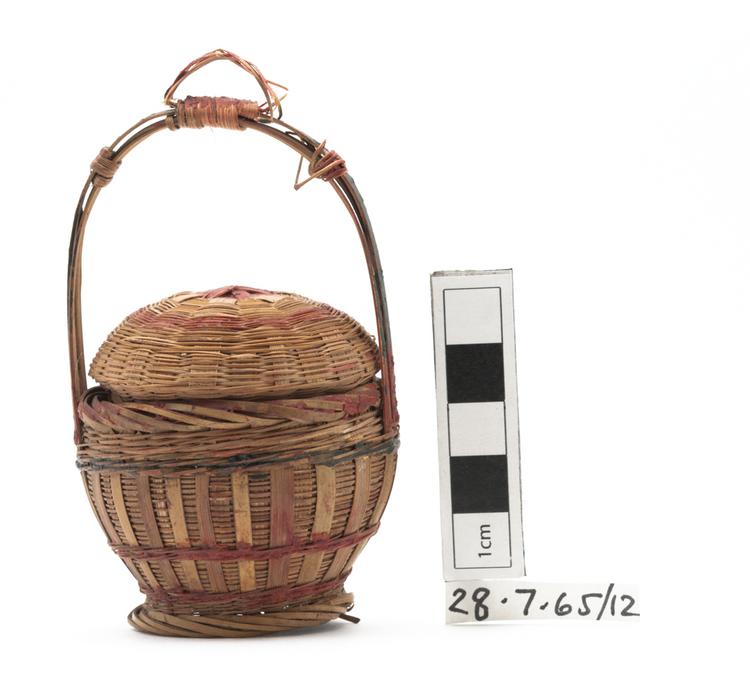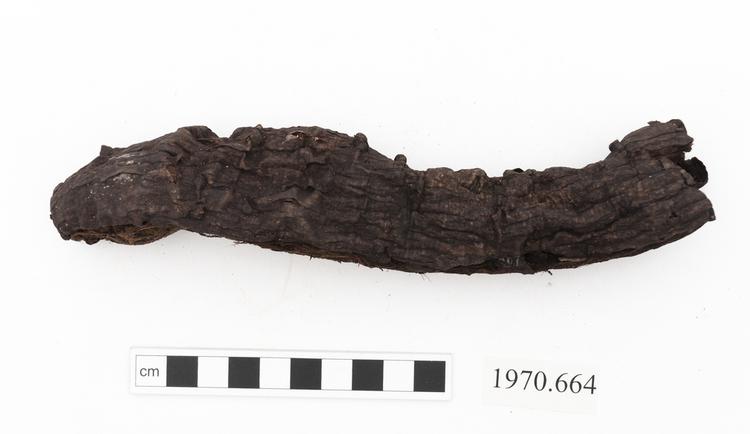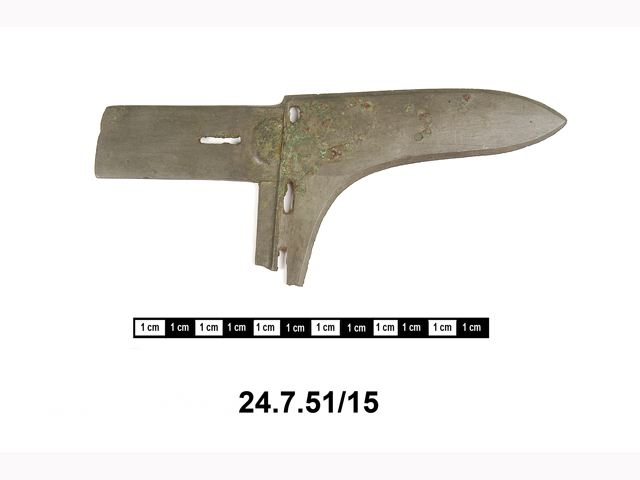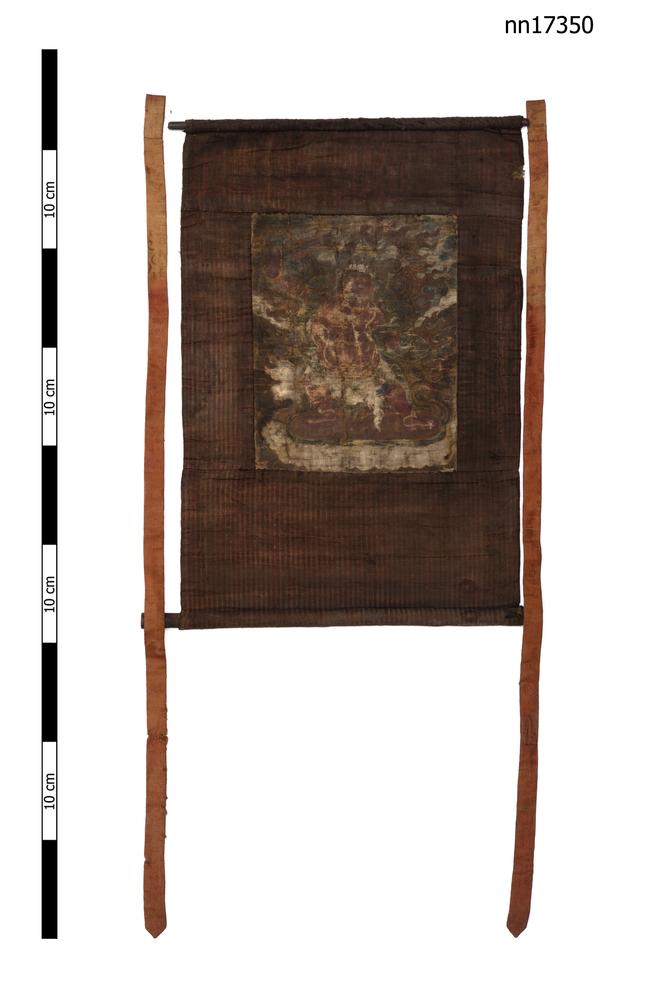
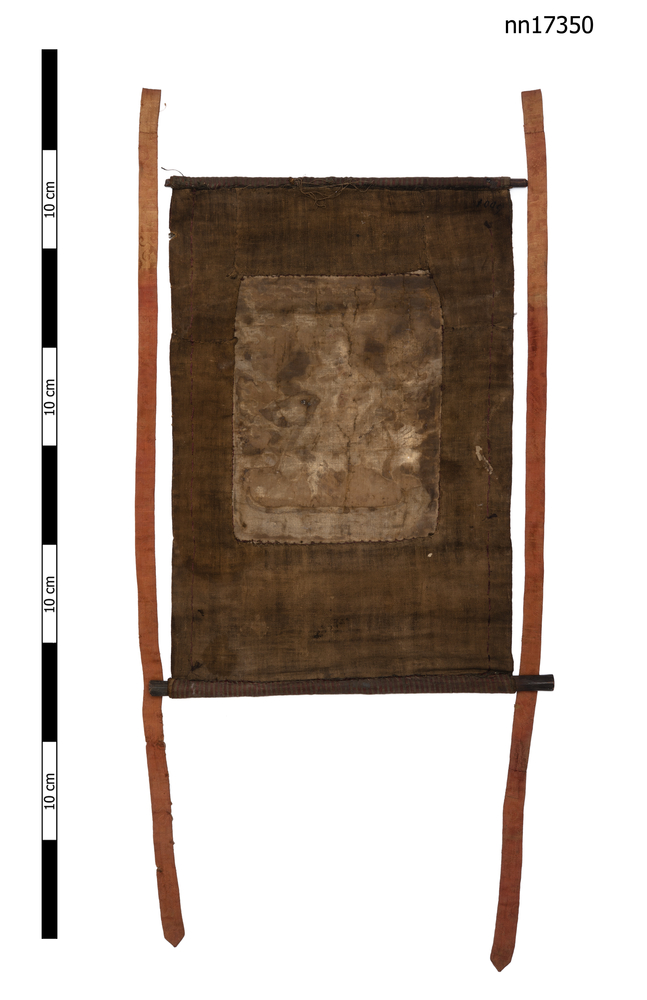
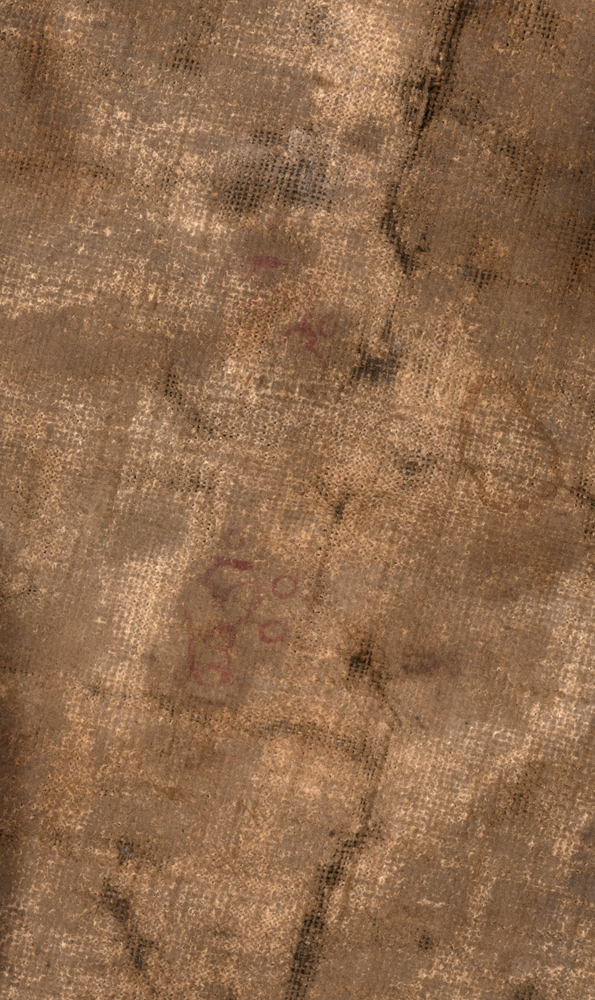
Painted cloth, thangka, showing Manjusri.
For a thangka to be effective it first must be consecrated. Typically this involves inscribing the reverse of the painting with the mantra OM AH HUNG, or Body, Speech, Mind. These syllables are written on the thangka by a Rinpoche -a reincarnated Buddha, returned to help others reach enlightenment- or a high lama. The location of the syllables corresponds to the deity depicted on the thangka: body is marked on the other side of the canvas to the forehead, speech, the throat and mind, the heart. Through this process of consecration (or rapney in Tibetan) the image on the thangka becomes the deity it depicts.



